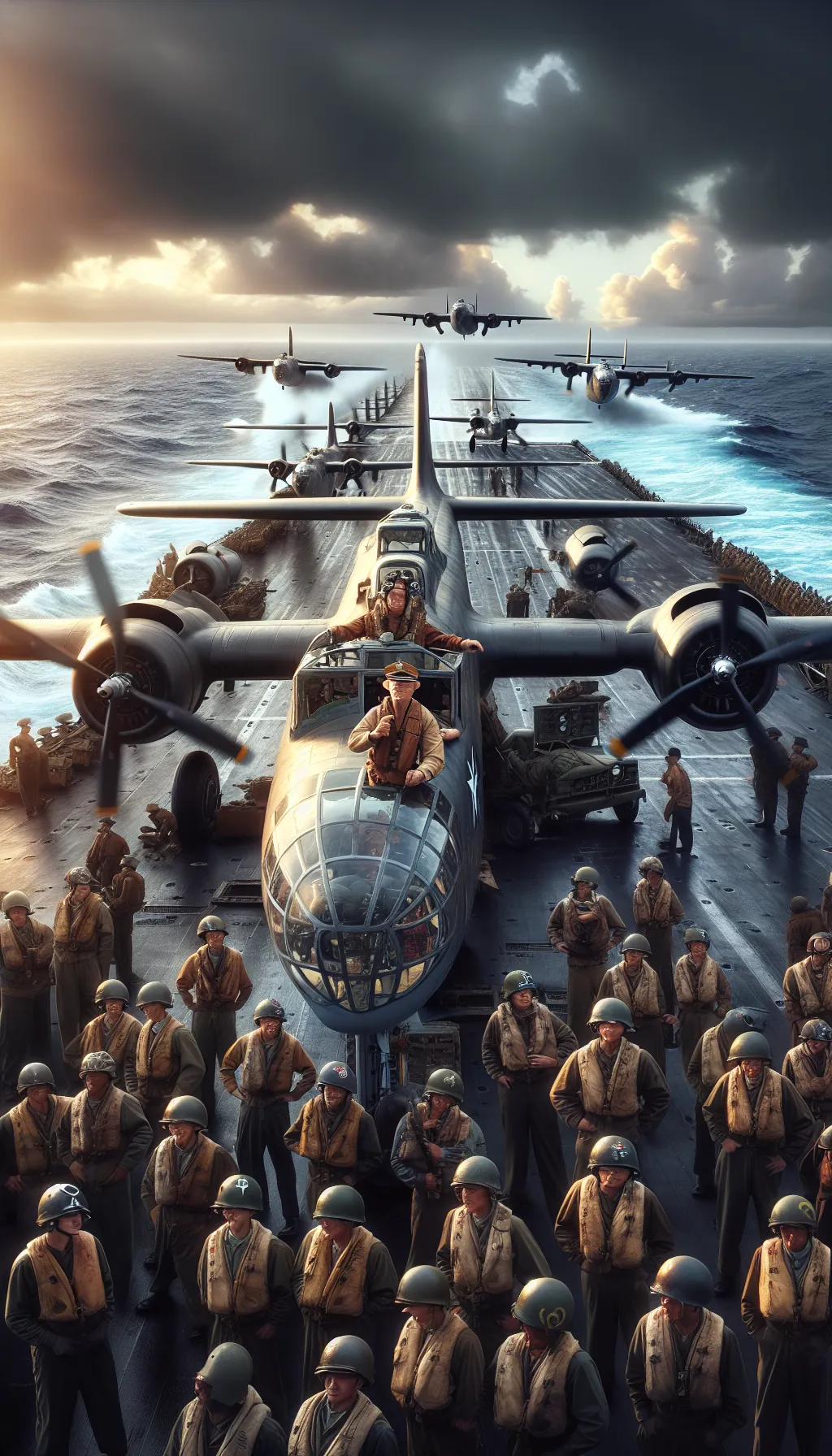United States – Daring Skies: The Doolittle Raid of 1942
TLDR;
- Event: On April 18, 1942, the Doolittle Raid saw 16 B-25 bombers launch from the USS Hornet to bomb Tokyo and other Japanese targets, marking the first U.S. air raid on Japan during WWII.
- Significance: This daring mission, led by Lieutenant Colonel James Doolittle, was a psychological boost for the U.S. and a shock to Japan, proving the Japanese homeland was vulnerable.
- Outcome: While the physical damage was minimal, the raid had a profound impact on morale and strategy, despite the loss of all aircraft and significant crew casualties, including executions and deaths in captivity.
- Legacy: The raid demonstrated American resolve and ingenuity, setting the stage for future operations in the Pacific and highlighting the sacrifices of those involved, including Chinese civilians who faced reprisals for aiding airmen.
–
Story
In the daylight of April 18, 1942, sixteen B-25 bombers roared to life on the deck of the USS Hornet, their mission shrouded in secrecy and danger. As the first aircraft lifted off around 8:00 AM (local time), piloted by Lieutenant Colonel James Doolittle himself, the crew knew they were embarking on a mission that could change the course of the war.

Just months after the devastating attack on Pearl Harbor, the United States was desperate for a victory, a sign that the tide could turn against the Axis powers. The Doolittle Raid was conceived as a bold statement, a daring plan to strike at the heart of Japan and prove that the enemy was not invincible.
The bombers, stripped of unnecessary weight and equipped with makeshift fuel tanks to extend range, took off from the carrier in the choppy waters of the Pacific, heading for Tokyo and other strategic targets. The element of surprise was their greatest ally, and as the bombs fell over Japan, the psychological impact was immediate. The Japanese, who had believed their homeland to be untouchable, were shaken.
Though the physical damage was limited, the raid’s significance was monumental. It lifted American spirits and sent a clear message: the United States was not defeated, and it would fight back with ingenuity and courage.
The mission was not without sacrifice. Of the 16 bombers launched, only 15 reached their targets (one diverted to Vladivostok, Russia, due to fuel concerns). All 16 crews had to ditch or bail out, with most landing in China. Three men were executed by the Japanese, and one died in captivity. The raid also led to severe reprisals against Chinese civilians who aided downed airmen, a consequence often overlooked in dramatized accounts. Yet, their bravery set the stage for future victories in the Pacific theater.
–
| Would a different strategy have changed the outcome of the Doolittle Raid? |